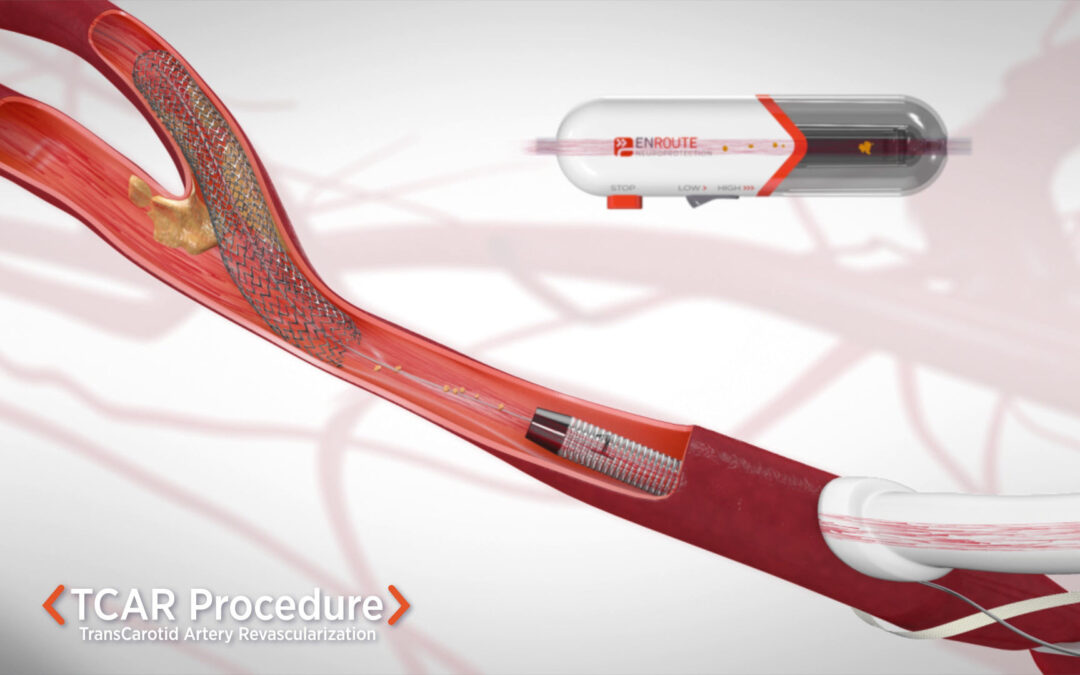Transcarotid Artery Revascularization
The Advanced Cardiovascular Specialists are improving outcomes for patients with carotid artery disease by using a new minimally invasive approach. Transcarotid Artery Revascularization (TCAR) is a leading-edge procedure that has been clinically proven to minimize the risk of stroke during surgery, providing an option for intervention in patients who are at high risk for traditional open surgery.
What Is Transcarotid Artery Revascularization?
TCAR is a minimally invasive alternative to carotid endarterectomy (CEA), the traditional approach for placing a stent in a blocked carotid artery. In addition to being minimally invasive, TCAR reduces the risk for stroke by temporarily reversing blood flow during the procedure. The advanced technology used in TCAR diverts blood flow away from the brain, preventing any plaque that may come loose from reaching the brain and potentially causing a stroke. This less invasive approach also reduces the risk of heart attack and nerve injury.
How the TCAR Procedure Works
The procedure is performed through a small incision at the base of the neck. A tube is placed inside the carotid artery and connected to a device that diverts blood flow and any loose plaque away from the brain. The blood is filtered and returned through a second tube placed in a vein in the groin or thigh. With the brain protected, the carotid stent is implanted. Once complete, the system is removed, and normal blood flow is restored. The procedure usually takes less than an hour, and it is performed under local or general anesthesia.
The Benefits of TCAR
- Significantly reduces the risk of stroke
- Less risk of heart attack and nerve injury than open surgery
- The procedure takes less than half the time of traditional surgery
- Minimally invasive, meaning a smaller incision and smaller scar
- Less recovery time needed
Is TCAR Right For You?
TCAR is recommended for patients at high risk for traditional surgery. This may be due to age, other medical conditions or anatomic concerns with carotid endarterectomy. Your doctor will determine your suitability for TCAR.
The Risks of TCAR
All procedures involving the carotid artery carry some risk of causing stroke or heart attack. However, TCAR is clinically proven to minimize the risk. Other possible risks include damage to the artery or cranial nerve, and bleeding or bruising at the access site.
The team at Advanced Cardiovascular Specialists consists of North Louisiana’s leading experts in cardiovascular care. For more information about TCAR or to schedule an appointment, please call our office at (318) 798-9400.

